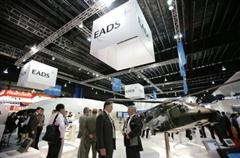There are already reports that EADS, which would seek to provide A330 airliners made by its subsidiary,Airbus, to be modified into the tankers, is talking to other defense contractors about partnering. The addition of an experienced, preferably American, company could mitigate some of the issues facing EADS with leading a contract of this size for the U.S. military. The company has not had many major contracts to date with the Pentagon.
Considering that it has taken more than eight years and two aborted tries to award a contract, another two-month delay is minor. To Boeing and its supporters, though, it is unnecessary and seems to be a reflexive response to the French President’s recent visit to the White House and his pointed criticism of the current situation. Boeing is still confident that it will win the contract as its proposal, based on the smaller KC-767, meets the requirements better, which is why Northrop backed out.
If EADS and a new partner do submit a winning bid, the immediate result could be protest, litigation and more delays. The program now looks at getting new aircraft in 2011-15. Under the original lease plan from 2002, there should have been new aircraft flying now and the aging KC-135 heading to the boneyard.
Both Boeing and Airbus would love to get the work as the world’s airline business is still recovering from the recession. This contract would provide needed revenue and also subsidize the construction of a facility in the southern U.S. that could compete with lower labor costs to its existing plants in France and Germany. Boeing is building a plant in South Carolina.
A competitive contract is almost always preferable to a sole-source one. But if EADS fails to bid, or if its bid is unsuitable, all that will have resulted from this decision is one more delay to this critical program.


























